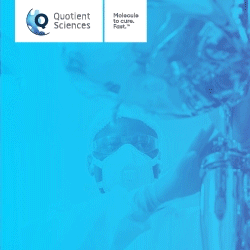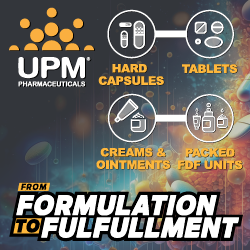PolTREG Identifies Promising Efficacy Biomarker for Type-1 Diabetes in Patients Treated With its Treg Therapy in Combination With Rituximab
PolTREG S.A. recemtly announced it has published data in International Immunopharmacology, which suggest that PD-1+ T-cells are a dependable biomarker for efficacy in pediatric early-onset Type-1 diabetes (T1D) patients, who had been successfully treated with PTG-007 Treg cell therapy, the company’s lead asset. The new results are from a two year immune-monitoring data follow-up of 36 patients who had participated in a randomized, placebo-controlled Phase 1/2 clinical trial. This three-arm trial had earlier shown that 50% of PTG-007-treated patients in combination with rituximab were still in remission after 24 months.
PolTREG CEO Piotr Trzonkowski, who co-authored the peer-reviewed study, said “This peer-reviewed scientific publication adds to our growing excitement about the potential of polyclonal Treg therapies. We have treated over 100 patients with our cell therapy at our facility over the last 17 years. This has afforded us a wealth of data and unrivalled experience with how T1D and other autoimmune diseases respond to various treatments, including our polyclonal Treg cell therapies and – starting next year – engineered Treg therapeutics. Having a biomarker of efficacy, like PD-1+ T-cells, could facilitate doctors’ ability to monitor their patients’ responses to therapy. We already use this data to build new cell products and design next trials towards marketing authorisation. It shows the strength of our unique approach of using the experience from working with patients as the basis to build our portfolio.”
The main finding of the Phase 1/2 study, results of which were published in 2022, was that combined treatment with autologous T-regulatory cells (Treg) and rituximab is superior to monotherapy in T1D. The current study aimed to assess the immune profile in patients by setting up immunophenotypes of Treg, effector, and T cells, trying to correlate them with the clinical and biomarker outcomes. The main findings were the following:
- A clinical response in T1D to treatment with polyclonal Treg cells and rituximab is associated with increased percentages of PD-1+ T-cells (both T-reg and T-effector cells), and remodelled humoral immunity
- Increased levels of PD-1+ T-cells correlated with successful treatment and should be confirmed through further study as a biomarker of efficacy
- Higher expression of PD-1 receptor on T-cells also correlated with a better response in patients, such as needing a lower daily dose of insulin
- Monitoring PD-1+ T-cells may enable immune monitoring of the therapy
PolTREG holds one of the most advanced pipelines for Treg therapies for autoimmune disease, developing both polyclonal and engineered cells. Its lead candidate, PTG-007, an autologous polyclonal Treg treatment, is in mid-stage clinical studies for T1D and multiple sclerosis (MS). Next year, PolTREG expects to start a first-in-human trial of its engineered CAR-Tregs for treatment of two neurodegenerative diseases – MS and amyotrophic lateral sclerosis (ALS). The company also is in preclinical development with two further types of engineered Treg cells.
PolTREG manufactures all its Treg therapeutics at its wholly-owned GMP-certified manufacturing facility. It is the first company in the world to administer T-reg therapies to patients, and, under a hospital exemption valid in Poland, the first to start receiving revenues from a Treg therapeutic for autoimmune disease. Its GMP manufacturing facility is one of Europe’s largest and most advanced, boasting over 2,100 sqm of laboratory space, including 15 production lines. PolTREG has the option to substantially expand the facility to accommodate manufacturing of next-generation engineered therapies and cell therapies from future partners.
PolTREG is a global leader in developing autoimmune therapies based on T-regulatory cells (Tregs). Its lead product, PTG-007, autologous Treg treatment for early-onset Type-1 Diabetes (T1D) is ready for Phase 2/3 clinical testing, for which the company is seeking a partnership. The company will launch Phase 2 trials for PTG-007 to treat Multiple Sclerosis (MS) in the second half of 2024, for RRMS and PPMS. PolTREG also has engineered Tregs, including CAR-Tregs, antigen-specific Tregs and TCR-Tregs, in the preclinical stage. PolTREG has completed four clinical trials with more than 100 patients treated with Tregs. For more information, visit www.poltreg.com.
Total Page Views: 989












